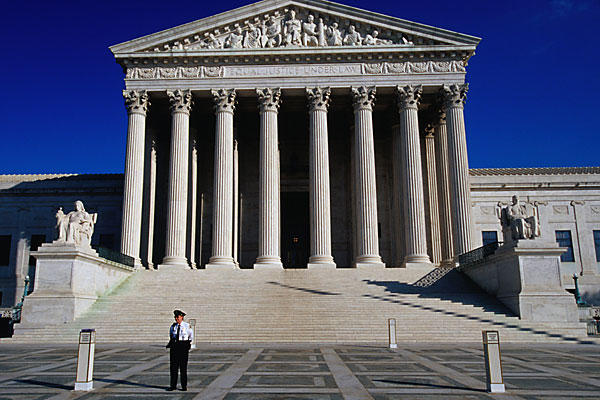Texas Redistricting Maps and Voter ID Appealed


Some Texas lawmakers returned from the Republican National Convention after the state suffered a bad week in federal court. Texas was found in violation of Section 5 of the Voting Rights Act of 1965 not once, but twice in less than a week. Republican leaders are now looking ahead to save some major partisan initiatives as quickly as possible.
First, the U.S. District Court in Washington, D.C. tossed out redistricting maps drawn up by the 82nd Texas Legislature, which had a GOP super-majority. Two days later, another three-judge panel struck down Senate Bill 14, a voter ID law, because of how strict it was and the burden it would place on low-income and minority voters.
Read more about the redistricting ruling in, "Texas Redistricting Maps Infringe On Voting Rights, Court Says".
Texas Attorney General Greg Abbott vowed to appeal both rulings to the Supreme Court of the United States (SCOTUS) and Republican leaders in Texas would like to see the matter resolved before the general election on November 6. This is highly unlikely since SCOTUS does not reconvene until October. One month is generally not enough time for the justices on the high court to decide to take up an appeal, hear the case, and then make a decision.
The district court concluded that SB 14 was the most stringent voter ID law in the country. The judges focused on the law’s impact on, not only Hispanic and black voters, but the poor. They ruled that SB 14, to the best of their knowledge, would put a heavy and “unforgiving” burden on the lowest income earners in the state.
Under the law, the state would have offered an ID specifically for voting for free. However, the law doesn’t address the financial and accessibility hurdles that some voters would experience when acquiring the necessary documentation to obtain the ID. The Department of Justice and Texas Democratic lawmakers focused on the effect these burdens would have on Hispanic voters in particular.
Republican lawmakers adamantly defend SB 14 and claim the purpose of the law is to safeguard the integrity of the Texas electoral system and protect the votes of eligible citizens in the voting age population. However, they could not provide one example of in-person voter fraud to base their argument on.
Advocates of voter ID laws argue that state-issued identification is required for a number of things, including cashing checks and using credit cards. Photo ID is required to do many day-to-day activities, so why should it not be required to vote? It seems like a reasonable question. Voter fraud is a crime just like underage drinking, identity theft, check fraud, and credit card fraud.
Where the argument hits a road block is that identity theft is a very common crime. Credit card and debit card fraud are common crimes. Even check fraud is still considered a common crime in a digital age. What isn’t a common crime is voter fraud and in-person voter fraud is statistically non-existent. State lawyers ran into a problem when they could not show that the stringency of the law was necessary.
The judges unanimously agreed that Texas did not make their case. When there isn’t evidence that a law will prevent the crime its supporters says it will and would end up disenfranchising more voters than it would protect it has, as the court noted, a retrogressive effect.
Requiring photo ID at the ballot box isn’t necessarily a partisan position. The way many states have gone about the issue has fallen mostly on partisan lines, but there are people of several different political philosophies that would not have a problem with a law that required voters to show some form of identification at polling locations as long as the law is reasonable.
Democratic State Senator Wendy Davis of Fort Worth, Texas, stated:
“Requiring photo identification could have, perhaps, been enacted fairly, but Governor Perry and state leaders insisted on forcing through a flawed law that would have wasted millions of taxpayer dollars without protecting a single vote. Texas leaders should be focusing on creating jobs instead of throwing money away on partisan politics.”
It doesn’t have to be a partisan issue. The federal court even said that if GOP lawmakers had broadened the type of photo ID allowed, had Department of Public Safety offices open on the weekend, and considered the financial burden this could have on some segments of the electorate the decision would have been closer. There is a reasonable approach to voter ID because requiring voters to verify their identity at polling locations isn’t completely far-fetched.
Texas officials are preparing for their next legal battle before the high court. Greg Abbott is convinced SCOTUS will uphold the redistricting maps drawn by state lawmakers and the voter ID law. It is highly unlikely either will be settled by the general election, but it is something to watch because SCOTUS’ decision on these cases will have an impact on future cases regarding voting rights in the United States.



